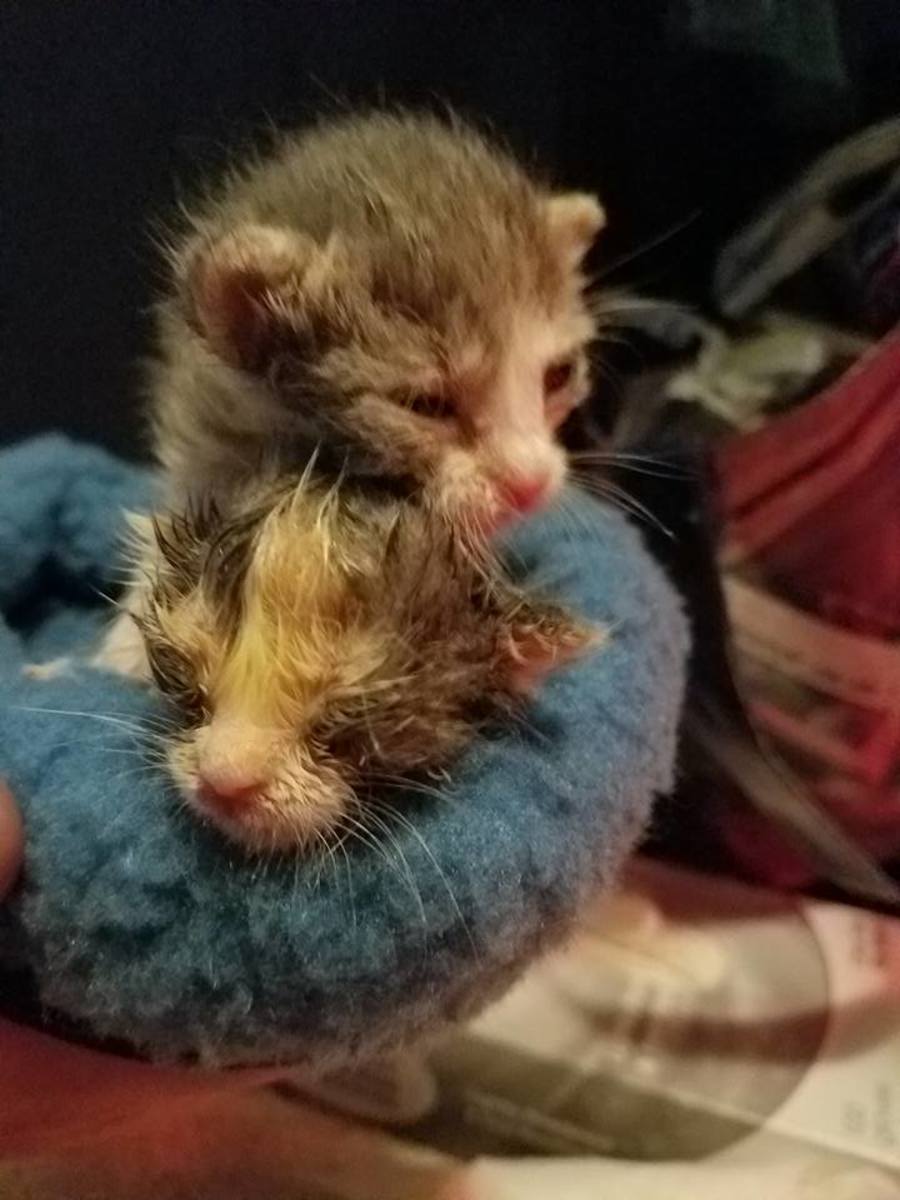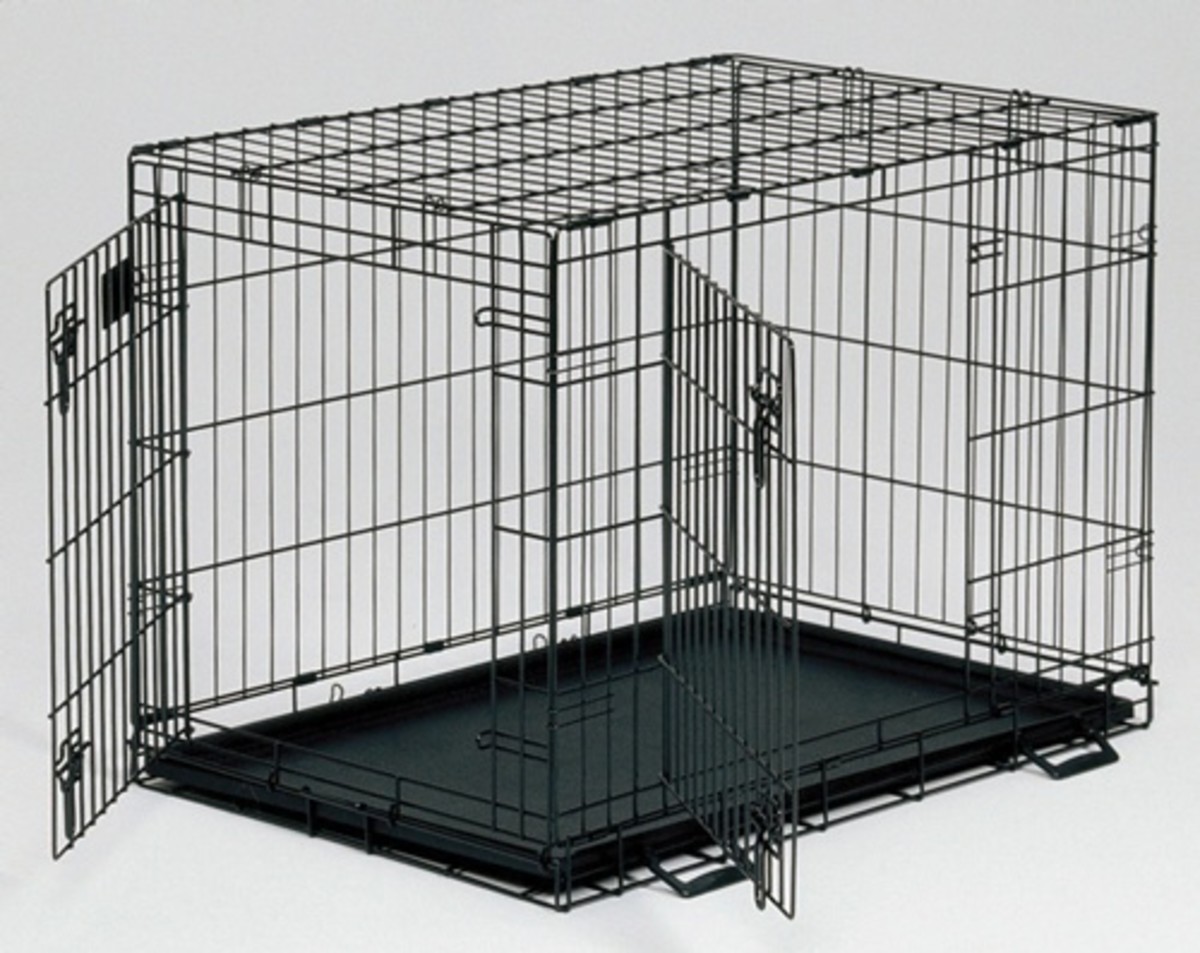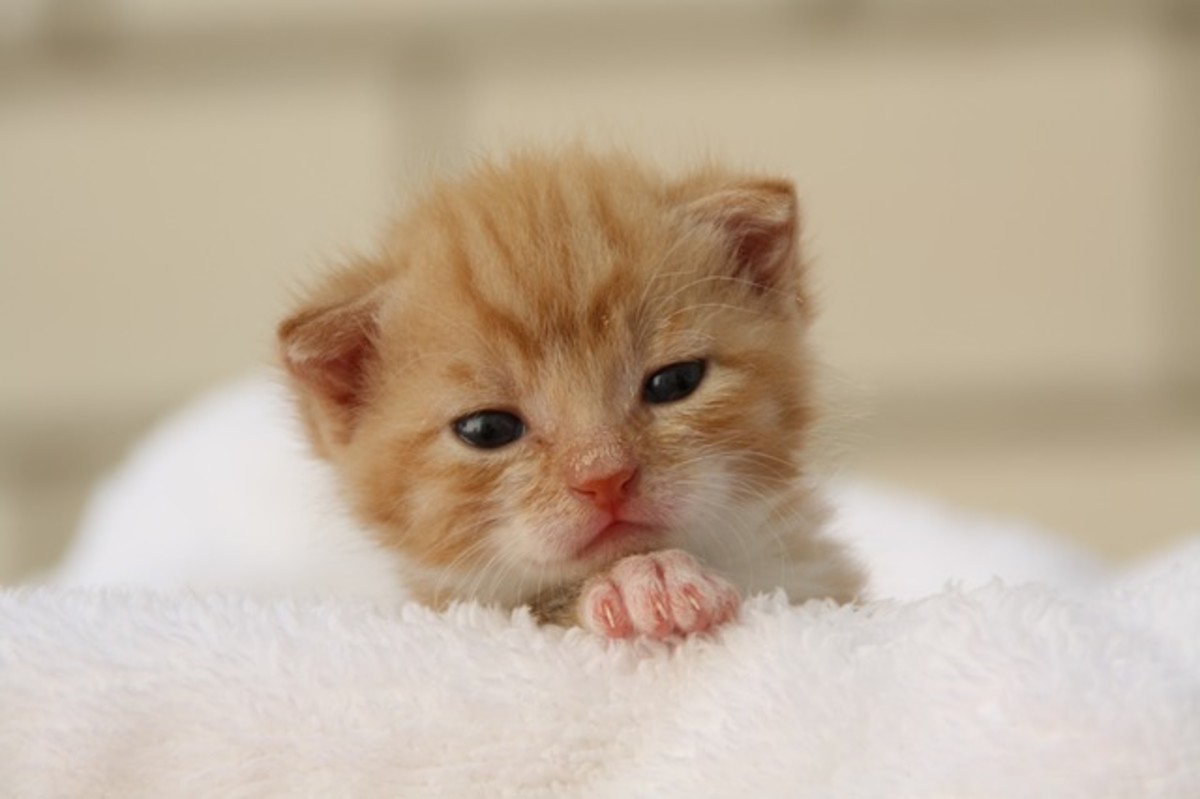What To Do When Your Cat Is Missing the Litterbox
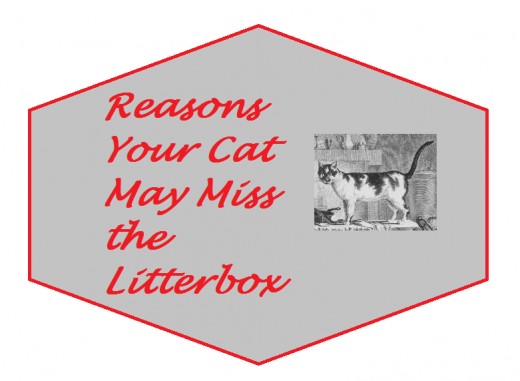
If you are having trouble with your cat missing the litterbox, there may be a fixable reason behind the problems.
Inside cats who miss the litterbox are not bad cats nor are they trying to cause a problem for you. Usually, there is a genuine issue causing the behavior change and it is important to identify the cause in order to pinpoint the right solution.
Causes for missing the litterbox include:
- Dirty Litter Box
- Stress
- Urinary Tract Infection
- Kidney Issues
- Diabetes
- Change in type of litter or box
- Old Age
Find out what you can do to help your cat and save your relationship.
First and Foremost Talk to Your Vet
Any behavior change in your cat warrants a visit to the vet. If your cat has not been for a complete check up in a while, it is a good idea to schedule one for him.
The vet can notice physical changes such as weight loss or weight gain and run blood work to rule out underlying illness.
Make sure to let your vet know about the changes in your cat.
Then Make Sure The Litterbox Is Clean
Most cats prefer a clean litterbox to use. If you do not clean out the box at least once a day then your cat may be going outside of the box out of disgust.
The first step to getting your cat to use the litterbox is to make it clean and inviting. Scoop all waste out and use fresh litter.
Don't use any harsh chemicals or strong perfumes to clean the box. A simple routine of scooping the box out once or twice a day may be all your cat needs in order to start using the box again.
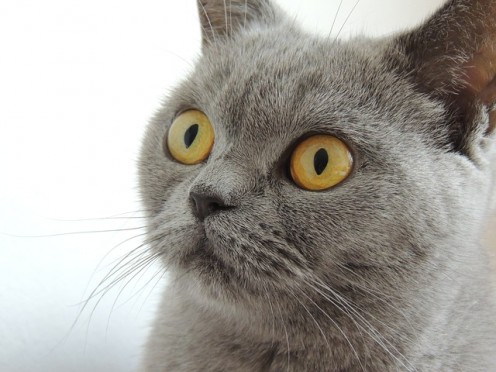
Some products help to destress your cat
Stress Causing Litterbox Issues
Sometimes the way your cat expresses stress or anxiety is through a change in their litterbox habits. Cats thrive on routine, predictability and peace, and so if there is a disruption in any of these, they may change habits.
Stressed cats may stop eating, hide more often, bite or growl and stop using their litterbox and go in places they are not supposed to.
In order to help your cat through her stress, you need to decide what is causing the issue. Common stress triggers for cats include:
- Change in family dyamics (new baby, guests, divorce)
- New pet
- Change in routine (family's hours or routines change)
- Other change such as moving to a new place
If your cat is experiencing stress and the symptom is not using the litterbox, you can first figure out if you can alleviate his stress.
For example, is there a quiet room where the cat can go? If so place food, litterbox, water and bedding in that room. Sometimes a radio playing softly will also help.
Isolating the pet to a smaller space may help to calm the cat down and get them used to going to the litterbox again.
There are also products such as Feliway which mimic the soothing scents and smells a relaxed cat makes. While it is not detectable to a human, getting a Feliway diffuser may also be a good idea for reducing the stress of your cat.
Whether you cat is eliminating outside the litter box with solid or liquid waste, trying to destress it may be your answer.
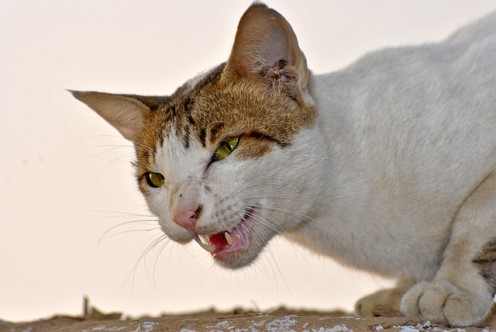
If your cat is prone to UTI's, you may want to try a maintenance food or medication to prevent future problems
Why Cats Won't Use the Litterbox When They Have a UTI
Another reason a cat may stop using the litterbox is if he has a urinary tract infection.
Urinary tract infections are most common in male cats.
Cats with urinary tract infections or UTI experience pain when they are trying to urinate. Since this pain happens while they are in the litterbox they begin to associate their box with the pain.
They will then try other places for elimination in an attempt to not hurt when going to the bathroom.
One way to tell if it is a UTI is to examine the eliminated liquid. It will often look cloudy or bloody, signalling an infection.
A UTI is a serious illness and should be treated with antibiotics. Your vet can take a sample or your cat's urine and prescribe medication.
If your cat is prone to UTI, you can use maintenance food or medication to help prevent future infections.
Missing the Litterbox May Be A Sign of Kidney Issues
If your cat is going outside of the litterbox, it may be a sign of kidney failure.
Kidney failure is especially common in older cats. When a cat's kidneys start to fail, she will begin to drink more water which in turn means that she will have to go to the litter box more often. Sometimes the cat will miss the litterbox because she doesn't make it in time. Other times the litterbox may already be soiled or full so she goes beside it or near it.
If you have a cat that is eliminating outside the litterbox and having a high volume of liquid, kidney issues may be to blame.
Your vet can diagnose kidney problems via blood tests and suggest appropriate medications and fluids to help your cat feel better. After she starts feeling better, the problem may correct itself.
Be aware though that kidney disease is progressive in cats and eventually she may be too weak to climb in and out of the litterbox. At that point you may have to use dog training pads that are easy to clean up.
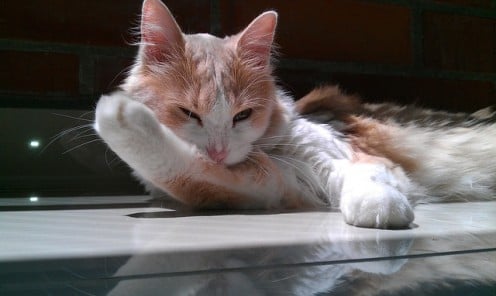
Litterbox Issues and Diabetes
Another issue that may cause your cat to miss the litterbox is the development of diabetes. Just like in humans, one of the signs of diabetes in cats is excessive urine production.
They may produce so much that they fill the litterbox quickly or can't get there in time before their bladder releases.
Increased risk factors for feline diabetes include old age and being overweight.
If your cat is facing litterbox issues because of diabetes, it is important to talk to your vet in order to get on a weight reduction plan and to change your cat's food. Your vet may also suggest insulin shots to help control the cat's blood sugar.
Diabetes in cats is treatable and once it gets under control, the litterbox issues may also self correct.
Try Unscented Litter
Changing the Style of the Litterbox or the Type of Litter--How It May Affect Your Cat
If you have recently either changed the style of the litterbox that you use or the type of litter you are using, your cat may be expressing his stress or discomfort with the changes by going outside the litterbox.
Some cats prefer a litter box with a cover or lid. Some will stop using it if you put a cover on it. Some prefer clay litter and some do not.
If you have changed any of the products you used, try going back to the old product and see if that makes your cat happy. If you want to introduce a new kind of litter, add it slowly to the old litter and mix it in so that you cat slowly gets used to it.
And remember that even though perfumed litter may smell nice to us, a cat's nose is sensitive and she may try to avoid highly perfumed litter. Try a good, unscented litter instead.
If your cat is old, he or she may have trouble stepping in and out of the litterbox
Old Age and the Litterbox
As cats get older everything gets a little harder and more confusing for them. They may, at times, have trouble remembering where the litterbox is or have trouble climbing in and out.
If you suspect your cat is having trouble getting in or out of the litterbox, you might consider purchasing ones with an incline that makes it easy to walk in and out of.
You should also not change anything suddenly such as move the litterbox to a different location. If you want to relocate it, do so gradually so that the cat can "follow" the new trail.
Cats may occasionally get confused or forget. Sometimes it is best to put them in a smaller room where food, water and litterbox are close and easy to find.
Other Reasons for Litterbox Issues
There may be other reasons that you cat doesn't go to the litterbox. These reasons include:
- Loss of eyesight or smell
- Being bullied by other cats or pets when trying to go to the box
- Confusion caused by a new home
- Confusion caused by never having used a litter box before
Most of these can be fixed if you isolate the cat in a smaller space with the litterbox. If the cat has been an outdoor cat and never used a litterbox, try adding a little bit of dirt to the litter as a thin layer on top. This will signal to the outdoor cat that this is now the place that it needs to use.
Any Messes Need to be Cleaned Up Completely
Make Sure To Clean Up All Messes
If your cat eliminates outside the litterbox it is important to deep clean the area where it went to the bathroom.
Since most cats rely on scent, at least partially, to remember where to go to the bathroom, a soiled area may potentially attract the cat again.
There are enzymatic cleaners and sprays made especially to clean up any pet accidents. Look for one that neutralizes odors.
Use a steam vac or other extractor to pull any liquid out of carpeted areas.
Be sure not to use ammonia to clean up the mess as this will only attract your cat even more back to the spot.
Summary of Litterbox Issues and Solutions
Problem
| Solution
|
|---|---|
Dirty Litterbox
| Clean the box regularly
|
Stress
| Isolate the cat as much as possible from the stressor; Use Feliway
|
UTI
| Get antibiotics from your vet.
|
Kidney
| Get treatment plan from your vet.
|
Diabetes
| Get blood sugar and weight under control.
|
Change in litter
| Try unscented, high quality litter.
|
Change in style of box
| Experiment with a box with a lid and one without.
|
Old age
| Try a litterbox with a ramp. Isolate the cat to a smaller area.
|
Outdoor cat
| Add a layer of dirt to the top of the litter.
|
Common reasons cats miss the litterbox.
What do you think is causing your cat to miss the litter box?
Remember that you may not experience overnight behavior correction, even if the actual change in litterbox habits happened overnight.
Patience with your cat is so important. Yelling at him, punishing him, striking him or rubbing his nose in it will only serve to stress out the cat further and may make the problem worse.
Your cat does not want to displease you. Missing the litterbox is a call for help and they are depending on you to help them find a solution.






